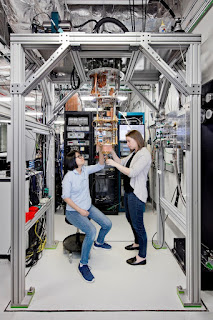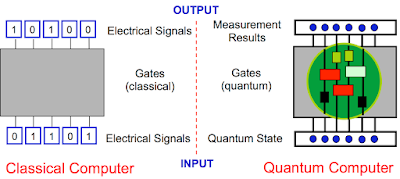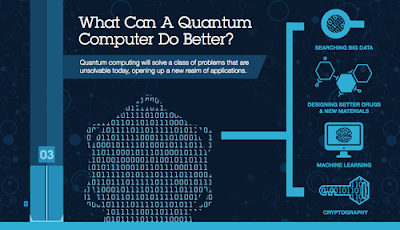Twitter Feed
“Cloud Musings” Named A “Top 50 Blog”
My appreciation and thanks goes out to Jeremy Geelan for including “Cloud Musings” on his list of the Top 50 Cloud Computing Blogs. Thanks is also in order for “HighTechDad”…
Will Oracle Buy Informatica?
According to 1,250 ERP Software Advice readers that will be Oracle’s next acquisition. Terradata came in a close second in this race, suggesting that Oracle will “…play it safe next time…
What’s Next For Oracle?
Watching Larry Ellison and Oracle over the years as it has morphed itself is a real study in market dynamics. It’s transformation from database company through middleware provider to now…
Enterprise Architecture Enables Innovation: Melvin Greer, Lockheed Martin
Earlier this week, my good fried and NCOIC colleage, Melvin Greer was interviewed by Rutrell Yasin of Government Computer News. In the interview, Mel focused on the importantance of entrprise…
Are You A Cloud Architect? NJVC Needs YOU!!
If you are a cloud computing architect, have I got news for you! NJVC, one of the largest IT solutions providers supporting the U.S. Department of Defense (DoD), is building…
“Army Private Cloud” RFP Released
Last week the US Army released a procurement solicitation for the Army Private Cloud. This $249M solicitation calls for a 1-year base period with four, 1-year options. Department of the…
Cloud Musings Direct Launches
In response to request, the inaugural “Cloud Musings Direct” newsletter was launched this week. This bi-weekly electronic newsletter will highlight important government cloud computing industry trends and events. If you…
CloudExpo Europe 2010: Not Your Father’s Prague
When my good friend Jeremy Geelan invited me to speak at CloudExpo Europe in Prague, Czech Republic my imagination went into overdrive. Being a child of the 60’s and a…
NCOIC Plenary Highlights Collaboration and Interoperability
Last week in Brussels, Belgium, the Network Centric Operations Industry Consortium highlighted it’s support of collaboration and interoperability through an information exchange session with the National Geospatial-Intelligence Agency (NGA) and…
GovLoop “Member of the Week”
Thank you to Radiah Givens-Nunez and GovLoop for the honor of being their Member of the Week for June 21-25, 2010. Created in 2008, GovLoop is an online social network…
- The release of a new API (Application Program Interface) for the IBM Quantum Experience that enables developers and programmers to begin building interfaces between its existing five quantum bit (qubit) cloud-based quantum computer and classical computers, without needing a deep background in quantum physics.
- The release of an upgraded simulator on the IBM Quantum Experience that can model circuits with up to 20 qubits. In the first half of 2017, IBM plans to release a full SDK (Software Development Kit) on the IBM Quantum Experience for users to build simple quantum applications and software programs.
The IBM Quantum Experience enables anyone to connect to IBM’s quantum processor via the IBM Cloud, to run algorithms and experiments, work with the individual quantum bits, and explore tutorials and simulations around what might be possible with quantum computing. Since its launch less than a year ago, about 40,000 users have run over 275,000 experiments on the IBM Quantum Experience. It has become an enablement tool for scientists in over 100 countries and, to date, 15 third-party research papers have been posted to arXiv with five published in leading journals based on experiments run on the Quantum Experience.
 The broad availability of quantum computing capability could prove to be a significant blow to current data encryption practices. In 2015 the US National Security Agency actually advised US agencies and businesses to prepare for a time when the cryptography protecting virtually all e-mail, medical and financial records, and online transactions would be rendered obsolete by quantum computing. The US National Institute for Standards and Technology (NIST) is also running a competition to spur work on post-quantum algorithms.
The broad availability of quantum computing capability could prove to be a significant blow to current data encryption practices. In 2015 the US National Security Agency actually advised US agencies and businesses to prepare for a time when the cryptography protecting virtually all e-mail, medical and financial records, and online transactions would be rendered obsolete by quantum computing. The US National Institute for Standards and Technology (NIST) is also running a competition to spur work on post-quantum algorithms. - Drug and Materials Discovery: Untangling the complexity of molecular and chemical interactions leading to the discovery of new medicines and materials;
- Supply Chain & Logistics: Finding the optimal path across global systems of systems for ultra-efficient logistics and supply chains, such as optimizing fleet operations for deliveries during the holiday season;
- Financial Services: Finding new ways to model financial data and isolating key global risk factors to make better investments;
- Artificial Intelligence: Making facets of artificial intelligence such as machine learning much more powerful when data sets can be too big such as searching images or video; or
- Cloud Security: Making cloud computing more secure by using the laws of quantum physics to enhance private data safety.
This content is being syndicated through multiple channels. The opinions expressed are solely those of the author and do not represent the views of GovCloud Network, GovCloud Network Partners or any other corporation or organization.
( Thank you. If you enjoyed this article, get free updates by email or RSS – © Copyright Kevin L. Jackson 2017)
Cloud Computing
- CPUcoin Expands CPU/GPU Power Sharing with Cudo Ventures Enterprise Network Partnership
- CPUcoin Expands CPU/GPU Power Sharing with Cudo Ventures Enterprise Network Partnership
- Route1 Announces Q2 2019 Financial Results
- CPUcoin Expands CPU/GPU Power Sharing with Cudo Ventures Enterprise Network Partnership
- ChannelAdvisor to Present at the D.A. Davidson 18th Annual Technology Conference
Cybersecurity
- Route1 Announces Q2 2019 Financial Results
- FIRST US BANCSHARES, INC. DECLARES CASH DIVIDEND
- Business Continuity Management Planning Solution Market is Expected to Grow ~ US$ 1.6 Bn by the end of 2029 - PMR
- Atos delivers Quantum-Learning-as-a-Service to Xofia to enable artificial intelligence solutions
- New Ares IoT Botnet discovered on Android OS based Set-Top Boxes




